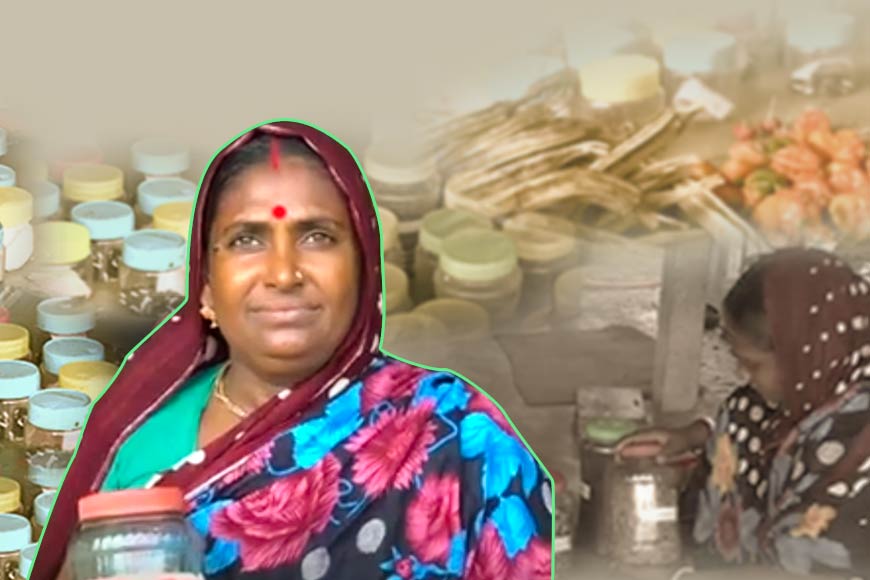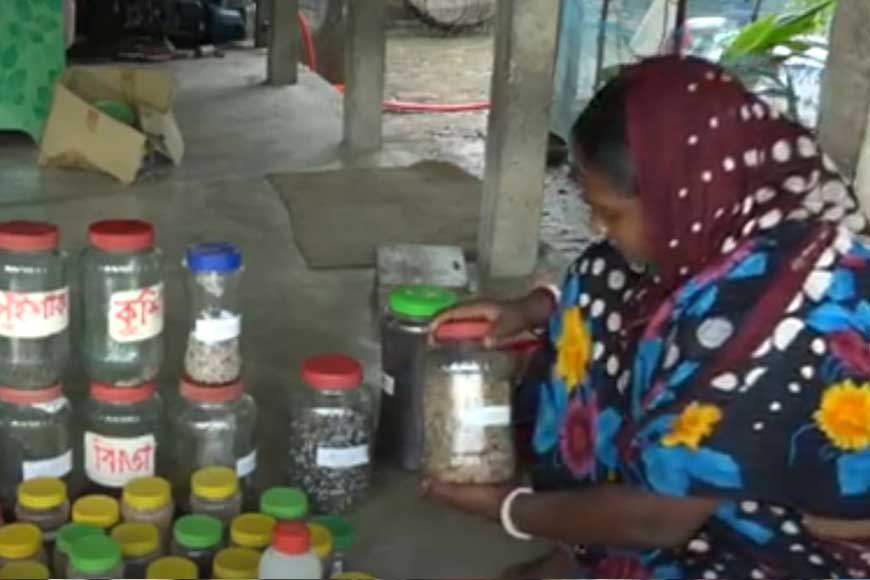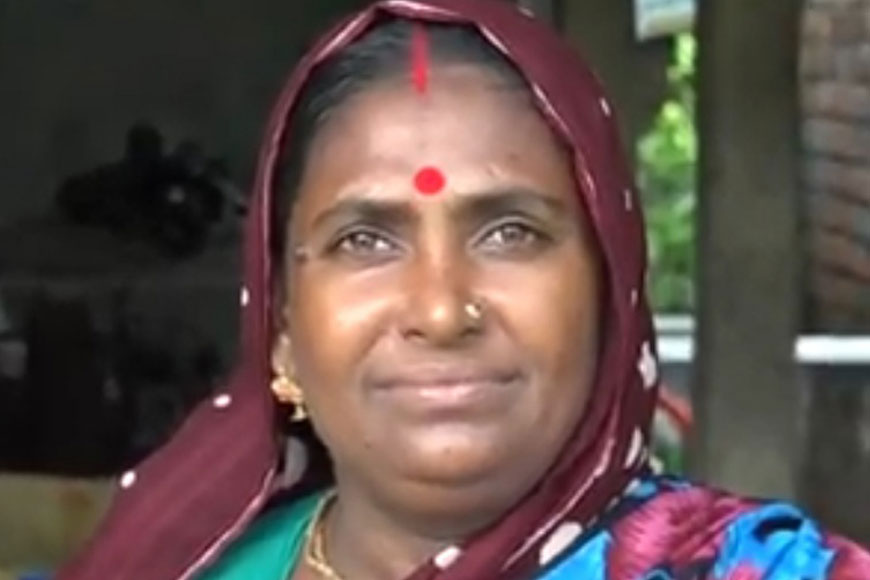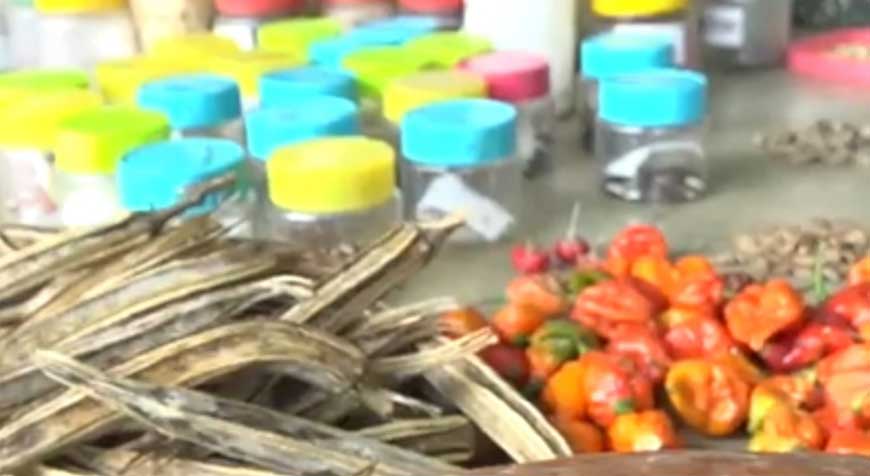How a rural housewife ‘Alpona Mistri of Satkhira’ is helping preserve indigenous crop seeds

Species extinction due to natural and man-made influences is undeniable and a serious threat to our planet. Once they are gone, we have lost them forever. For plants, seed banks are a way to combat this threat. They are an important part of a robust seed system for food security. Seed banks protect and save plant genetic diversity, which is important for a number of reasons. These saved and viable seeds contain a treasure trove of useful genes that breeders can use for developing improved varieties of our major food crops. For example, the seeds can be used to improve resistance to current and emerging plant diseases and insects, provide drought or flood tolerance and improve yields and nutrition to feed a growing global population.
Alpona Rani Mistri is a resident of Dhumghat village of Satkhira district in Bangladesh. She is a dedicated crusader who has made a name for herself as a rural innovative farmer who is painstakingly building up a seeds bank and encouraging other villagers to join the movement. Rare, heritage, indigenous, wild or region-specific plants are particularly vulnerable to extinction. Their loss over time also can lead to genetic erosion of our food system. In other words, we lose the genetic diversity of a variety of crops. Adapting to climate change or new pests can be difficult without good genetic diversity. Crop breeders need a variety of genetic resources to help our crops adapt to changing conditions. As modern cultivators gain acreage and sometimes replace these plants, it becomes increasingly important to make sure these historic genetics are preserved in seed banks for future use.

Alpona’s village lies in one of the most vulnerable areas in Satkhira district where climate induced disasters occur very often. The area is located in the extreme saline zone in Bangladesh. Born into a poor farmer’s family, she was married off very early. When she came to live with her husband, he had no steady source of income and he had already lost the plot he had inherited. Left with no resources, Alpona began growing small quantities of vegetables and herbs on the land adjoining their house. Meanwhile, her husband migrated to the city in search of better income. Alpona started working as a share-cropper in the village paddy fields to keep the home fires burning.
In May 2009, Alpona’s life changed forever when the severe cyclonic storm, Aila hit the village and devastated the land. Alpona, and many other families in the village lost their houses and everything they had inside. Not only was Alpona’s agro-land flooded with brine water but also their 33 decimal homestead land was inundated by saline water.
Not one to bow down and accept defeat meekly, Alpona decided to fight back. She again started her kitchen garden and sowed vegetable seeds around her house. But soon she encountered an acute shortage of local seeds scarcity of organic manure. In 2012 she participated in a village agro-biodiversity fair hosted by BARCIK. There she got the opportunity to exchange ideas and views with other farmers and farmers’ organizations which participated in the event. She also received some indigenous seeds for farming and learnt different methods of organic farming processes. She then developed an integrated agricultural plan and started her journey.

In one of her interviews she said, “Plants, soil, water, birds, cattle -- we are all part of our extended rural family. It is not possible to survive here in isolation, detached from others. I learnt this idea of pluralism and inclusion from my surroundings. Bangladesh Resource Center for Indigenous Knowledge (BARCIK, a non-governmental non-profitable development organization founded in 1997) helped build up my confidence and identify the resources scattered around us. Now I’m happy with my family and living my dreams. Many women in my village have been inspired by my success and they too, have joined this sustainable integrated farming. My husband, who worked in the city as a daily wage earner earlier, has returned and started working on our farm. Now I realize each person is responsible for his or her well-being and it is for each individual to search for and discover one’s inner capabilities. I have learnt I can do something for myself, for my family, for my community, for my village and also for my society. There was a time when I existed as a poor, neglected housewife but now I’m doing something real to usher in social change.”
Alpona Rani’s progress has been in leaps and bounds. She has honed her skills and has moved on to the next level confidently. She is now engaged in searching for climate adaptive crop varieties and resilient farming techniques. She has already experimented successfully on bean diversity and is working on uncultivated food conservation. She is growing seasonal vegetables organically and raring livestock. She has also planted rare trees, medicinal plants and fruit trees in her locality. She is producing vermi-compost and botanicals and selling to other farmers. Alpona is also practicing traditional healing methods and helping the poor people with free primary healthcare.

Alpona has experienced the superiority of indigenous seeds and has now turned a crusader in favour of organic farming with local seeds. In the past, seeds of all traditional varieties were owned and maintained by farming households. These were part of the common heritage of farming households. Techniques of seed preservation were developed by these households and they had full control over the seeds. Traditional varieties were low yielding and failed to meet the growing food demand so they were replaced by hybrid and GM seeds having higher yield potentiality. Farmers were attracted by these and they were given governmental support to grow these seeds. As a result, farmers stopped growing traditional varieties and lost their seeds.
Alpona rejects hybrid seeds and propagates farming with indigenous seeds and use organic techniques of farming to other women. Alpona is now challenging the market-driven chemical agriculture and helping rural families for their organic farm expansion.











